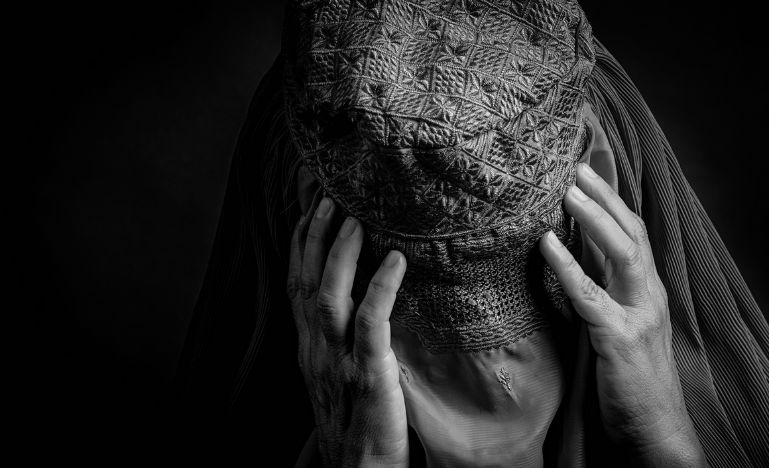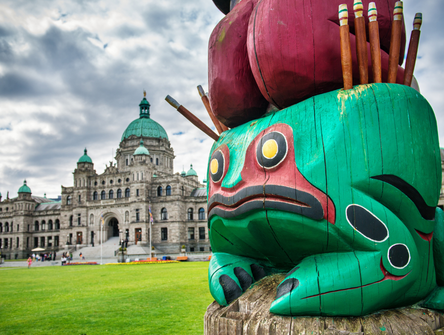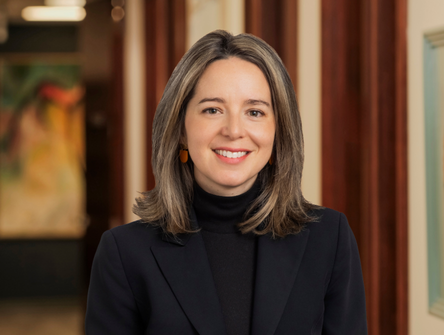Erased from public life
To mark International Women’s Day, we profile the push to recognize their treatment in Afghanistan as gender apartheid and examine Canada’s role in holding the Taliban to account

Before the Taliban retook control of Afghanistan in the summer of 2021, the country had a constitution, a legal system with protections in place for women and opportunities for their participation in every aspect of public life.
A Western military coalition forced the Islamic fundamentalist group from power in 2001, and in the 20 years that followed, women took up positions as ambassadors, in policing and in the military. They participated in politics, holding nearly 30 per cent of the seats in the country’s Parliament in 2021. There was even a Ministry of Women’s Affairs.
“There were opportunities for women to go and choose any field they wanted,” says Ghizal Haress, a constitutional lawyer who served as Afghanistan’s first ombudsperson, leading high-level corruption investigations, and the commissioner who oversaw the implementation of the country’s constitution.
“Women started going back to school. I went to university in 2001.”
All of that progress was quickly undone with the return of the Taliban, whose edicts have erased women from public life. Today, women are banned from speaking in public and cannot go out without a male guardian. Girls are barred from attending school beyond the sixth grade, and women cannot attend university. They are prohibited from holding jobs, and their businesses have been shut down. They cannot go to beauty salons or gyms.
The Taliban has resumed the public stoning and flogging of women charged with “moral crimes,” such as speaking to a man who is not a family member.
“It’s absolutely heartbreaking,” says Haress, who was forced to flee Afghanistan in 2021 after the Taliban came to her home looking for her multiple times.
“Every few days we see a new decree coming from the regime putting more and more restrictions on women.”
Last fall, shortly after the release of a new set of "morality laws,” actress Meryl Streep observed that animals have more rights than women in Afghanistan.
"Today in Kabul, a female cat has more freedom than a woman. A cat may go sit on her front stoop and feel the sun on her face; she may chase a squirrel in the park,” she said on the sidelines of the UN General Assembly.
"A squirrel has more rights than a girl in Afghanistan today because the public parks have been closed to women and girls by the Taliban. A bird may sing in Kabul, but a girl may not in public.”
She said what’s happened is “a cautionary tale for the rest of the world” and called on global leaders to "stop the slow suffocation" of Afghan women and girls.
Gender apartheid: calling a spade a spade
There is an international effort underway by Afghan and Iranian women leaders, lawyers, activists and other stakeholders to have this recognized by states and in international law for what it is: gender apartheid.
While there are existing forms of gender-specific crimes, including gender persecution, experts say they don’t fully capture the institutionalized and widespread nature of the oppression and deprivation of rights in Afghanistan.
The civil society campaign is aimed at codifying gender apartheid in the draft convention on crimes against humanity, which the International Law Commission, a UN body mandated to advance the development of international law, has been working on for the past number of years.
Crimes against humanity include rape, murder, torture, (racial) apartheid, deportation, and persecution committed as part of a widespread or systematic attack directed against a civilian population.
Although defined in the Rome Statute, the International Criminal Court’s founding document, there is no international treaty to prohibit and punish these crimes similar to what exists for genocide, war crimes and torture.
Alex Neve, an international human rights lawyer and adjunct professor of international human rights law at the University of Ottawa, says that since the 1948 adoption of the Universal Declaration of Human Rights—the outset of the modern international human rights system—women's equality rights have been at the centre of the global human rights order.
The Rome Statute took that up a notch by explicitly recognizing that gender persecution may very well amount to a crime against humanity.
But despite all of this being in place for decades, “it is very clear that denial of the equality rights of women and girls around the world continues to be one of the most overarching human rights failures on the planet,” says Neve, the former secretary general of Amnesty International Canada.
The Taliban has taken that to an unimaginable level by making the denial of women's human rights a matter of systematized, institutionalized governance.
“That absolutely takes us into the realm of apartheid,” he says, adding that the similarities between how women are treated because of their sex and how black South Africans were treated because of their race are abundantly clear.
“It is time to strengthen international law so that there are more tools and more avenues open for addressing egregious instances of gender persecution like we see in Afghanistan.”
Haress, who’s now a visiting professor at Osgoode Hall Law School, an adjunct professor at the University of Toronto, and a co-chair of the High-Level Expert Group on Gender Persecution and Gender Apartheid, thinks what’s happening to Afghan women is even worse than what happened in South Africa.
“The term apartheid meant being apart, being separated, but communities there were not deprived of all their rights. They were not deprived of education, access to health or justice. They were not deprived of the ability to work and have an income; their businesses weren’t closed,” she says.
“But in Afghanistan, we see all of that happening. There is a complete shutdown of all opportunities for women and a complete denial of any rights that women enjoyed and were guaranteed under the previous constitution. They have been wiped out of public life and there's no hope for the future.”
In no other country around the world has there been such state-imposed limitations against women. Haress says there will soon be no female doctors in Afghanistan because many have left the country, and closing universities meant others could not complete their medical studies. Women are not allowed to be treated by male doctors, so they will be completely denied access to health care.
‘This should shock the conscience of humanity’
Before 2021, women had protection under the law. There were special domestic violence police units, prosecutors and courts. None of that exists now and no women are working in the justice sector. Women cannot even freely go to the police to file complaints, particularly in cases of violence. In fact, a woman might be punished for doing so. Haress says the situation allows the worst human rights violations to happen.
“We have seen a rise in cases of suicide. We have seen a rise in cases of child marriages. We have seen a rise in cases of forced marriages.”
In his June 2024 report, Richard Bennett, the UN Special Rapporteur on the situation of human rights in Afghanistan, said the Taliban’s institutionalization of a system of discrimination, segregation, disrespect for human dignity and exclusion of women and girls “should shock the conscience of humanity.”
He said this constituted gender persecution but went further, acknowledging that while gender apartheid is not yet codified, the term “most accurately denotes [this] institutionalized oppression.”
The UN’s working group on discrimination against women and girls has also called for gender apartheid to be recognized as a crime against humanity, noting the Taliban’s rule makes the codification in international law “particularly urgent.”
Bennett has called on states to support its recognition and codification.
That has yet to happen in Canada.
In 2023, Senator Salma Ataullahjan, who grew up in Pakistan and spent holidays in Afghanistan, put forward a motion urging the Canadian government to recognize gender apartheid. It was adopted in the Senate last June but has not been adopted in the House of Commons.
“By its silence, this government is complicit in the erasure of Afghan women and girls,” she wrote on social media after the Senate’s adoption.
“If we do not act now, this will embolden other countries where women’s rights are silently and progressively being rolled back. The time to be a true ally is now.”
Ataullahjan, who chaired the Senate Standing Committee on Human Rights, says Canada wasn’t there for Afghan women as the prospect of the Taliban returning to power loomed in 2021. Speaking with National, she recalled a meeting between women parliamentarians in Afghanistan and some Liberal ministers here.
“The Afghan women knew they needed serious help” but were basically told that people here were thinking of them.
“Everybody walked away from Afghanistan and left the women,” Ataullahjan says. “They were just left out of the equation.”
Now that so many have had their voices silenced by Taliban edicts, she is determined to use hers to speak up for them.
“I don't want the women and girls of Afghanistan to be forgotten,” she says.
“There's a few of us who are sitting in a place where our voice is occasionally heard. Let's continue to talk about them, and let's call what’s happening to them gender apartheid.”
Ultimately, it’s difficult to combat a crime without defining it. That’s why language matters, says Haress. When something in front of you is undeniable, you must call it what it is.
Canada’s responsibilities under international law
Despite the federal government’s insistence that it has a feminist foreign policy and the fact we had a long military presence there, she says for a long time after the Taliban returned, Afghanistan wasn’t as much of a priority for Canada as one would expect. She wasn’t sure what Canada saw as its responsibility as a member of the international community.
A working group on gender apartheid at the University of Toronto’s International Human Rights Program wondered the same, so it set out to analyze Canada’s responsibilities under international human rights law to the women of Afghanistan. Haress worked with the law students, whose first report will soon be published.
“Canada's traditional role has been more on the humanitarian aid front. Our goal was to emphasize how political and diplomatic support are also critical in these situations,” says Cassie Heward, one of the working group’s student leaders.
“It's not just about throwing money at human rights issues. If you're signing all these treaties and holding yourself to upholding these rights and values, you must be outspoken about it and ensure your diplomatic efforts are aligned with that.”
During her research, Heward was disheartened to find minimal reference to what’s happening in Afghanistan on the parts of Global Affairs’ website pertaining to Canada’s feminist foreign policy. The same was true of the National Action Plan on Women, Peace and Security.
“This is where they lay out the critical issues around human and women's rights internationally, and they barely mentioned Afghanistan, which is arguably the most prevalent and pressing.”
Taking the Taliban to court
Taking action at the International Court of Justice was among the working group’s recommendations, so it was a welcome turn of events when word came last fall that Canada, along with Australia, Germany and the Netherlands, had started the legal process of holding the Taliban to account in an effort that could end up before the Court.
Supported by 26 other countries, they have formally called on Afghanistan to cease its violations of the UN Convention on the Elimination of All Forms of Discrimination against Women (CEDAW), which Afghanistan ratified in 2003.
Catherine Morris, the acting UN coordinator for Lawyers Rights Watch Canada, says CEDAW has a mechanism that allows state parties to seek ICJ enforcement, but there is a process to navigate before anything goes before the court. The first part involves a six-month negotiation period, where parties work out what the offending country needs to do to adhere to the treaty. Given that the Taliban has dismissed the allegations against them as “propaganda,” there’s probably not much, if any, negotiating happening.
If things remain unsettled once the six-month period is up, the matter can move into arbitration. If the parties cannot agree on the organization of the arbitration within a further six months, one of the parties may refer the dispute to the ICJ.
So, Morris says, “It will be at least a year before any court action can start.”
If that does happen, it would be the first time a country has been brought before the Court for gender discrimination.
The move has given Haress and others hope that Canada is back on the scene as a strong partner for Afghanistan. In February, Foreign Affairs Minister Mélanie Joly chaired a meeting of women foreign ministers to discuss the situation facing women and girls there. Canada and Jamaica co-hosted a similiar meeting last fall.
“We’re happy to see Canada is now part of the struggle and fighting for women's rights,” Haress says.
She stresses how important it is that women not just be the subject of the ICJ litigation but active participants in every step of this process. The international community can’t allow a repeat of the negotiations leading up to the Taliban’s return when women were not at the table.
Canada has since taken in many from Afghan civil society, including activists, parliamentarians, and judges, so there’s a large diaspora of women who were active in the former Afghan government who are here and able to lend their voices to the effort.
‘Historic and groundbreaking move’
In January, International Criminal Court (ICC) prosecutor Karim Khan announced that applications had been filed seeking arrest warrants against the Taliban Supreme Leader, Haibatullah Akhundzada, and the Taliban Chief Justice, Abdul Hakim Haqqani, for their suspected responsibility for the crime against humanity of gender persecution.
A month later, the Taliban announced it was withdrawing from the ICC, but that doesn’t end the matter. For starters, there’s a question as to whether the Taliban has the legal standing and authority to do this, as it has not officially been recognized as the legitimate government of Afghanistan by any country or the UN.
“In fact, there's a real push to ensure they're not recognized,” says Morris.
The Rome Statute also doesn't give parties an escape clause from accountability. While they can leave the ICC, that doesn’t mean it suddenly loses jurisdiction.
“It would be ridiculous if you could leave as soon as you’re under investigation, and then the ICC must disappear,” says Mark Kersten, an assistant professor of human rights and international criminal law at the University of the Fraser Valley.
“The ICC forever retains jurisdiction over the period that Afghanistan was a member state (since 2003) and the Rome Statute was legitimately in force.”
There’s also a process for withdrawing from the Court, and it’s unclear if the Taliban has taken those steps. Even if it does, the withdrawal doesn't take effect for a year after that.
Neve says having the two key international courts in play here is significant.
“We don't necessarily see that very often with respect to human rights situations around the world,” he says. “It’s consequential, it’s historic, and it’s groundbreaking.”
Kersten says the ICJ effort is about holding Afghanistan as a state accountable—more or less a lawsuit for violating a treaty—while the ICC is trying to seek individual criminal responsibility. But ultimately, they are looking at the same subject matter.
“They tended not to overlap before. Now they’re overlapping in interesting ways, in different situations.”
He expects some crossover legal dialogue, particularly if the ICJ ultimately finds that Afghanistan has violated its CEDAW commitments.
“The evidence put forward and the findings of that discrimination could (serve) as a very significant source of evidence into any further cases or prosecutions of the individual leaders.”
Whatever the outcome of these cases, the end result is a long way off. The same is true of efforts to codify gender apartheid.
“International law does not develop overnight,” says Neve, adding that he senses support and momentum are growing.
“Will we see this enshrined in an international legal treaty within a year? No, but we will continue to see statements of concern and support from major international human rights organizations and a growing number of governments. It may take time, but there is a good chance we'll get there.”
Haress says lengthy processes are par for the course in this realm.
“We know this is not straightforward or simple. It will be a struggle; no fight for women's rights has ever been easy. But there are a lot of groups that are working very hard,” she says.
“We expect the international community to really engage meaningfully and objectively with Afghan women, making sure that they are part of every step of the process, not just passive agents they do random consultations with. Their voices must be heard.”
* National reached out to Global Affairs for comment on its position on codifying gender apartheid and the status of its ICJ efforts but received no response.


